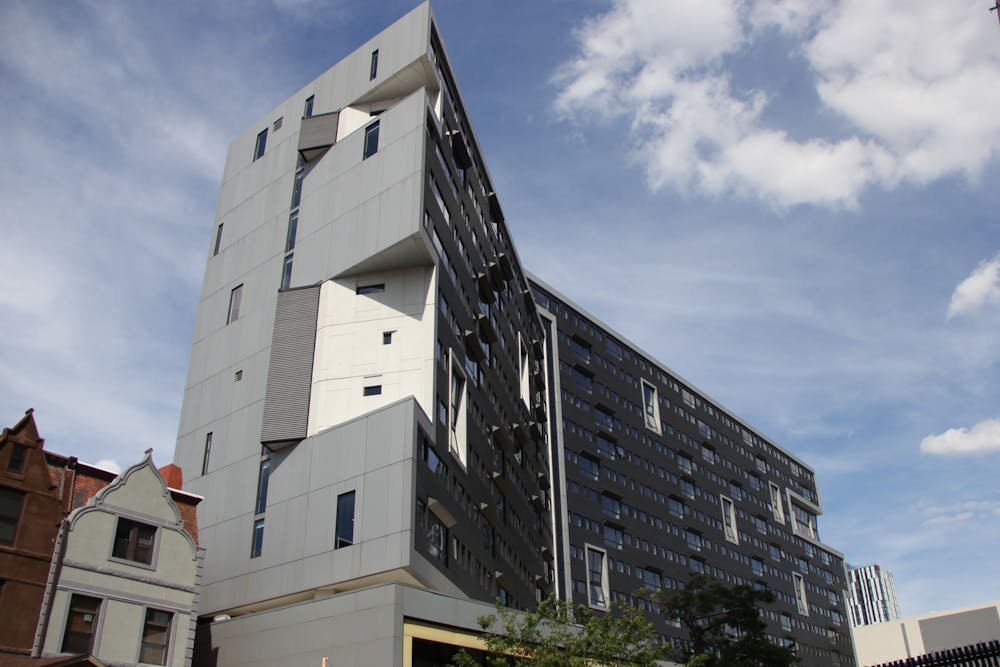Popular off-campus housing locations have reduced monthly rent fees and issued special last-minute promotion packages to counteract vacancies caused by a dip in sophomore student tenants.
The vacancies come as Penn's policy requiring sophomores to live in campus housing takes effect for the 2021-2022 academic year, forcing off-campus landlords to grapple with more vacancies than usual. Traditionally, about 60% of second-year undergraduate students live in on-campus housing, with the other 40% signing leases off campus with agencies like Campus Apartments, The Radian, and Hamilton Court Apartments, among others.
The Radian, an off-campus building on 39th and Walnut streets that houses 500 occupants – primarily students from Penn and Drexel University – has dropped rent for some rooms by nearly $500 following the large number of vacancies. The monthly rent for a four-bedroom two-bathroom unit type, currently listed as $1,509 per month per bedroom plus utilities, dropped to $1,029 per month for a limited time in April with the added bonus of a waived application fee, according to the Radian website on April 20. The price has since risen slightly to $1,229, according to the website, still nearly $300 less than the original price.
The Radian General Manager Daniel Vassalotti estimated that in previous years, about 15% of Radian leases were signed by Penn sophomores. Penn’s sophomore live-in policy has contributed to a slightly slower rate of lease signing than past years, he wrote in an email to The Daily Pennsylvanian. As of April 25, only about 70% of available spaces were signed for 2021-22, Vassalotti wrote.
Regardless, The Radian expects to be as “full or nearly full” as in past years, Vassolotti wrote.
Prices are also falling at Hamilton Court Apartments, an apartment complex on 39th and Chestnut streets. Normal leasing patterns have been disrupted due to “uncertainty around living requirements,” Vice President of Marketing Anthony Scotland wrote in an email to the DP.
While data on the percentage of second-year residents currently living in HamCo is “not readily available,” Scotland wrote, HamCo has dropped their rents to a starting rate of $1,089 per bedroom, down more than $300 depending on the unit, and offered a $600 move-in special, Scotland added.
The price drop marks a sharp contrast from 2018, when the lowest rent available in HamCo was $1,300 a person for an unfurnished five-bedroom unit. Students living in HamCo had previously expressed frustration over rent hikes after large-scale renovations of the apartment complex were undertaken that year.
Campus Apartments, the largest off-campus landlord, has also dropped its rent prices as part of a “Spring Savings” program, with unfurnished one-bedrooms starting at $895 per month, two-bedrooms starting at $1,290, three-bedrooms starting at $1,795 and four-bedrooms starting at $2,700, according to an April 16 email from General Manager Daniela Talanca. Campus Apartments is also offering building-wide WiFi for students in select locations starting this summer.
Operations Specialist for Campus Apartments Jay Perez did not respond to multiple requests for comment about how vacancies this year compared to previous years, or whether the sophomore housing policy contributed to lower prices.
Penn’s decision to require second-year students to live on campus was met with criticism, with students citing lower rent, better amenities, and greater flexibility living off campus. As part of the “Second-Year Experience” initiative, Penn will also require all second-year students to purchase dining plans, causing further outcry from students who saw the move as a “blatant cash grab.”
Many of Penn’s newest dorms, including Lauder College House and New College House West, do not have kitchens in units for students to cook for themselves, which many feel is more cost effective than a dining plan and a major draw of living off campus.









